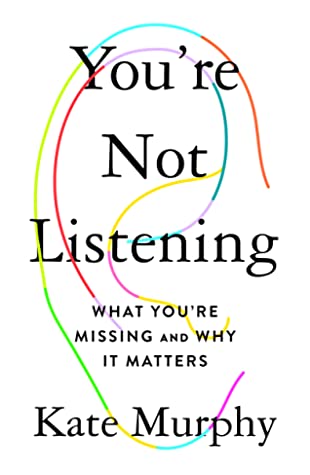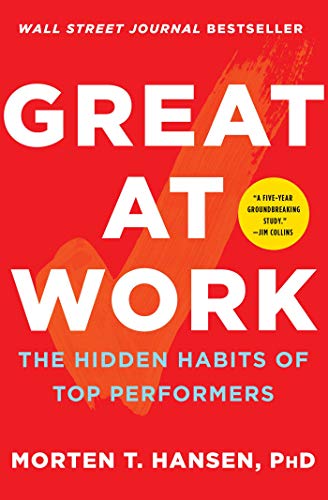Dear colleague,
As those of us stateside enter summer break, my wish is that you do the kinds of things in the next 45 days or so that strengthen your soul, engage your intellect, refresh your body, and nourish your relationships. Will we think about teaching during these days away? Of course — especially so this summer in light of all that's happened, all that's happening, all that we don't know about that's to come. Does this strengthening, engagement, refreshment, and nourishment happen only apart from the rigors of the school year? It had better not — otherwise how can we flourish when school resumes in the fall?
But there is something special about summer. Sink into that a bit.
Two months ago, I invited readers to join me in the reading of one or two books on reducing gaps in school outcomes. Nearly four hundred signed up, and over a quarter of them did the writing and posting that brought to life “the LTF Collaborative” — an asynchronous community platform for discussing books and education (screenshot below). I am so thankful for what I learned through this experience and for the willingness of so many people to engage with books that challenged, deepened, and clarified our thinking.

Today, I'd like to invite you to participate in Season 2 of the book club, which is uniquely crafted for summer schedules and Summer 2020 concerns.
How to join
Before I get to the books, let me detail the simple process for involvement.
- Order one or more of the books below.
- Sign up for the email list.
- Check your inbox for instructions on accessing the discussion platform and a few free PD videos I made on getting the most from our professional reading.
- Read at your leisure. Cold drinks, periodic naps, and out-of-doors recommended.
And now for the club parts. Get more from your reading by doing one or both of the following.
- Deepen your learning by writing one or more posts on the discussion platform (screenshot above) about what you're discovering or finding difficult in the book(s) you're reading. Bonus: Watch the video where I explain the PD benefits of writing about what we read professionally. (I send this to folks on the club email list.)
- Deepen your learning by joining me for an interactive conversation in mid-August. Exact dates TBD.
That's right — you've got from now until mid-August to do the reading. Why? Because summer. No need to rush. And yes, you can have as many friends and colleagues as you'd like join — the more the merrier. Again, the club email sign up list is here; there aren't any charges — it just costs the book.
Now let's get to the three book options for Summer 2020 — select one, two, or all three.
Book 1: Matthew Kay's Not Light, But Fire: How to Lead Meaningful Race Conversations in the Classroom (Kindle, paperback*)

With social media and city streets awash in conversations about race, many educators are more eager than ever to bring these conversations into classrooms. But here's the thing: not all conversations about race function as intended — many produce the opposite of what they're after. Across the United States, moral disengagement abounds.
If you'd like to dig deep into the practical considerations for planning robust, meaningful, and productive race conversations in the classroom, join me in listening to what Matthew Kay has to say. I'll end my recommendation where Matt ends his book: “Guided by humility, we can lead race conversations infused with consequence, conversations that motivate our students to push forward, to build more honest cross-cultural relationships.” Consequential conversations built on humility and honesty? That sounds different from much of what I see on social media.
Sign me up.
To get a closer look at Matt's work:
- Here's an interview from two months ago; you'll immediately get a sense of Kay's earnestness, his love for students, and his humility.
- Here's a Stenhouse clip where Kay differentiates between merely claiming a “safe space” and actually building a classroom climate conducive to honesty and vulnerability.
*The book is currently out of print due to high demand. I'm told that it's in a second printing now. If you're eager to get reading, go with the Kindle. If you can wait a week or two, keep checking back.
Book 2: Kate Murphy's You're Not Listening: What You're Missing and Why It Matters (Kindle, hardcover, audiobook)

How frequently have you seen examples of good listening lately? I made the error of scrolling through Twitter last night — not the notifications and messages, just the unadulterated feed. Lots of opinions, lots of arguing, lots of signaling, performance, defending; all kinds of shaming, name-calling, echo-chambering, and judgment…and not a whole lot of listening.
As I've long written, the best teaching tends to flow from people who build great lives, and the great lives — the deepest, most resounding, most relationally rich ones — are generally enjoyed by people who've apprenticed themselves to the discipline of listening.
Full disclosure: I'm a weakling here. But I'd like to do better — in my home, in my school — and I'd like to share what I learn with my students. And thankfully, Kate Murphy gives us lots of food for thought in her around-the-world tour on the art and science of listening.
To get a closer look at Kate's work:
- Here's an interview Murphy did with our colleagues Becky and Ben over at Vrain Waves.
- Here's Murphy's page at the NYT.
Book 3: Morten Hansen's Great at Work: The Hidden Habits of Top Performers (Kindle, hardcover, paperback, audiobook)

Hansen names a common problem for teachers in this book's earliest pages:
“The phrase ‘work smarter, not harder' has been thrown around so much that it has become cliché. Who wants to ‘work dumb'? But many people do in fact work dumb because they don't know exactly how to work smart. And I don't blame them, because it's hard to obtain solid guidance.” (p. 3)
Where do we get solid guidance on working smart — on producing more learning with less stress? This has long been a central question of my work as a teacher and a writer. What I love about Hansen's book is that he doesn't rely on anecdotes for his conclusions — he conducts a massive survey of 5,000+ professionals from all kinds of industries, and then, Jim Collins-style, he completes a deep dive analysis of the results. He lands in and deepens some places that longtime readers of my blog will recognize — “do less, then obsess” — and others that are new — e.g., the two sins of collaboration.
With so much uncertainty around what work will look like come fall, now's a great time to reflect on the deep principles of “working smart.”
To get a closer look at Morten's work:
- Here's a brief bit where Hansen discusses “do less, then obsess” on Dan Pink's mini-show.
- Here's a post I wrote about “squeezing the orange” — straight from Hansen.
- Here's a longer interview with Hansen.
I hope you'll join us!
Again, the steps are simple:
- Order one or more of the books.
- Sign up for the email list.
- Check your inbox for instructions on accessing the discussion platform and a few free PD videos I made on getting the most from our professional reading.
- Read at your leisure. Cold drinks, periodic naps, and out-of-doors recommended.
- Participate in the discussion platform all summer or the synchronous conversations in mid-August.
Best to you,
Dave
Barbara says
I look forward to this book club. I hope to improve as a teacher in this new world of virtual teaching.
Donna Walsh says
I am excited to see Not Light But Fire as an option. Several of us at my district have committed to reading and discussing this book. Now I will have you all as well to learn from. Thanks,
Dave Stuart Jr. says
I’m so glad, Donna — looking forward to discussing with you.